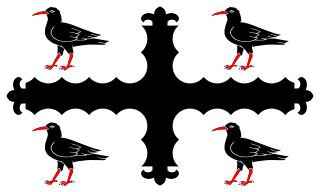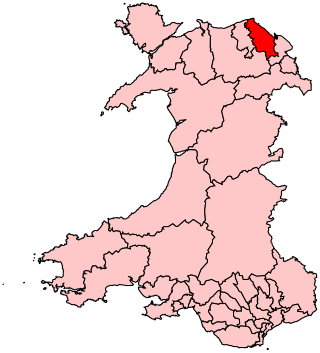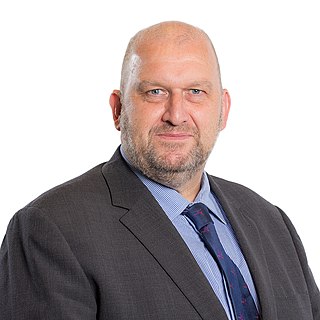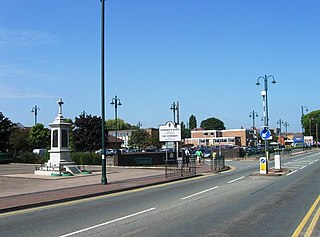Tom Middlehurst | |||||||||||||||||||||||||||||||||||||
|---|---|---|---|---|---|---|---|---|---|---|---|---|---|---|---|---|---|---|---|---|---|---|---|---|---|---|---|---|---|---|---|---|---|---|---|---|---|
 Official portrait, 1999 | |||||||||||||||||||||||||||||||||||||
| Assembly Secretary for Education and Training | |||||||||||||||||||||||||||||||||||||
| In office 12 May 1999 –9 October 2000 | |||||||||||||||||||||||||||||||||||||
| First Secretary | Alun Michael Rhodri Morgan | ||||||||||||||||||||||||||||||||||||
| Preceded by | Office established | ||||||||||||||||||||||||||||||||||||
| Succeeded by | Jane Davidson | ||||||||||||||||||||||||||||||||||||
| Assembly Member for Alyn and Deeside | |||||||||||||||||||||||||||||||||||||
| In office 6 May 1999 –1 May 2003 | |||||||||||||||||||||||||||||||||||||
| Preceded by | Assembly established | ||||||||||||||||||||||||||||||||||||
| Succeeded by | Carl Sargeant | ||||||||||||||||||||||||||||||||||||
| Majority | 6,359 (33.42%) | ||||||||||||||||||||||||||||||||||||
| Leader of Flintshire County Council | |||||||||||||||||||||||||||||||||||||
| In office 1 April 1996 –14 May 1999 | |||||||||||||||||||||||||||||||||||||
| Preceded by | Council re-established | ||||||||||||||||||||||||||||||||||||
| Succeeded by | Alex Aldridge | ||||||||||||||||||||||||||||||||||||
| |||||||||||||||||||||||||||||||||||||
| Personal details | |||||||||||||||||||||||||||||||||||||
| Born | 25 June 1936 Ormskirk,Lancashire,England | ||||||||||||||||||||||||||||||||||||
| Political party | Labour | ||||||||||||||||||||||||||||||||||||
| Spouse | Patricia Mary (m. 1986) | ||||||||||||||||||||||||||||||||||||
| Children | 2 | ||||||||||||||||||||||||||||||||||||
| Alma mater | Liverpool Polytechnic | ||||||||||||||||||||||||||||||||||||
| Signature |  | ||||||||||||||||||||||||||||||||||||
Thomas Middlehurst (born 25 June 1936) is a British retired politician who served as Leader of Flintshire County Council from 1996 to 1999 and Assembly Secretary for Education and Training in the National Assembly for Wales from 1999 to 2000. A member of the Labour Party, he was Assembly Member (AM) for Alyn and Deeside from 1999 until his retirement in 2003.
Contents
- Early life
- Career in local government
- Leader of Flintshire County Council
- National Assembly for Wales
- Assembly Secretary for Education and Training
- Resignation from the cabinet and retirement
- Personal life
- References
- External links
Middlehurst was born in Ormskirk, Lancashire, England. He was educated at Ormskirk Grammar School, Wigan Technical College and Liverpool Polytechnic, and in his early life lived in Skelmersdale. He was an engineering apprentice from 1952 to 1957 and worked as an engineer at the National Coal Board from 1957 to 1963, before working as an engineer and manager in the private sector until 1971. In 1971, he moved to Wales and became a local government officer for Flintshire County Council and its successor Clwyd County Council, remaining in this job until 1993.
In 1963, Middlehurst was elected as a Labour councillor for Skelmersdale Urban District Council, stepping down in 1968. In Wales, he was elected to Alyn and Deeside District Council in 1986 and Clwyd County Council in 1993 before becoming the first leader of the re-established Flintshire County Council in 1996, where he implemented council tax increases and cut local services to balance the budget. He also fought to prevent the closure of Theatr Clwyd and persuaded Terry Hands to become its director. From 1997 to 1999, he also chaired the Welsh Local Government Association.
In the first election to the National Assembly for Wales in 1999, Middlehurst was elected as AM for Alyn and Deeside. He was appointed to the cabinet of First Secretary Alun Michael as Assembly Secretary for Education and Training. In this role, he implemented free entry for children to galleries and museums, reformed the post-16 system of education and training and trialled a welfare scheme for benefit claimants in Newport, Torfaen and Monmouthsire. He also intervened in the Wales Millennium Centre project to keep government spending under control. He remained in his post under Michael's successor Rhodri Morgan until October 2000, when he resigned in protest of Labour's coalition agreement with the Liberal Democrats. He retired at the 2003 assembly election after becoming disillusioned with the politics of the National Assembly.






















